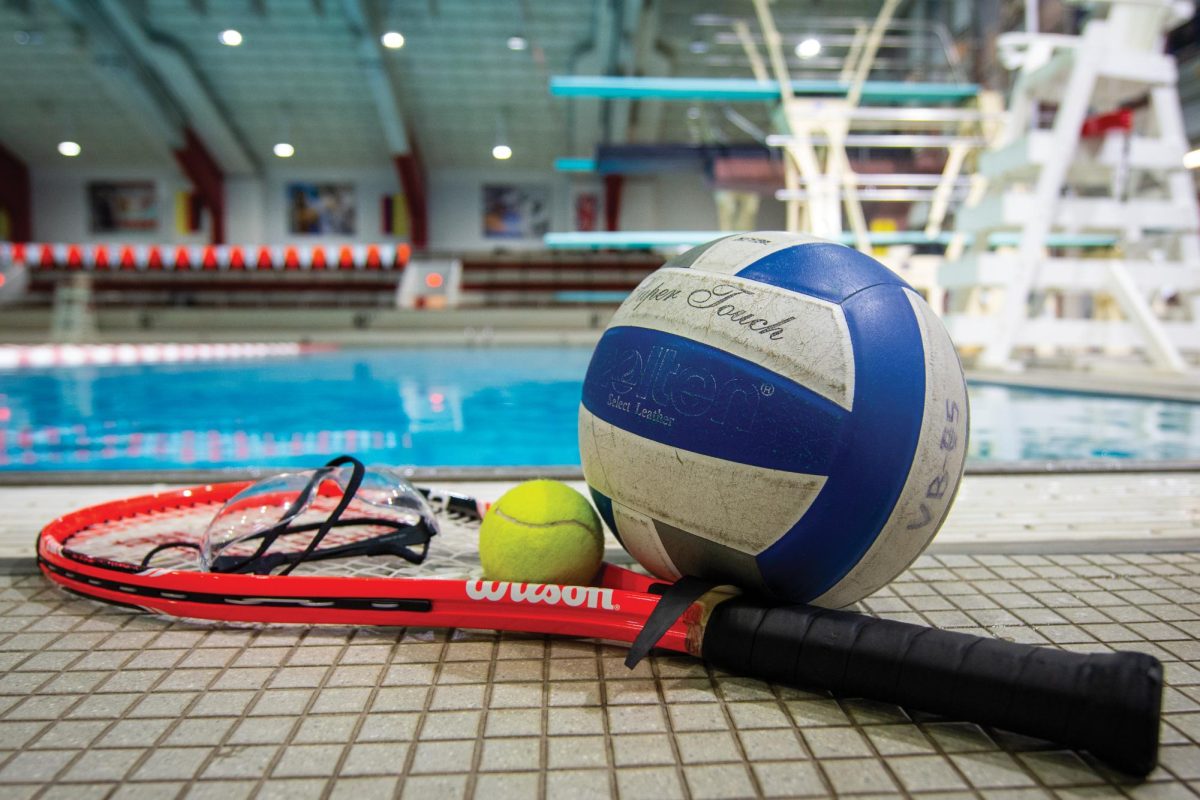In recent weeks, the reputation of the sports community has been tarnished with recent accusations and convictions against athletes. From ex-Baltimore Raven Ray Rice’s elevator incident to the barrage of bad decisions of Minnesota Viking Adrian Peterson, athletes and bad news have been nearly synonymous as of late.
In the past two weeks, NC State athletics has had disciplinary issues of its own. Two seniors were removed from the team roster after “violating team rules” during the week leading up to the volleyball team’s matchup with Georgia Tech on Oct. 10, according to head coach Bryan Bunn.
While little information is known regarding the volleyball players’ dismissal, the suspension of seven Wolfpack football players, including two defensive starters, gained much more coverage in the media. According to USA Today, the State players caused $880 worth of damage to cars shooting BB guns in an off-campus parking deck.
The university swiftly took action, suspending the players involved for the Wolfpack’s upcoming matchup against Louisville even before the incident was made public. While this incident probably could have been swept under the rug — the owners of the vehicles elected not to press charges against the players — the university chose to take action immediately.
Whether this move was made solely with good intent or simply to beat the press to the story, the university’s decisiveness must be commended.
However, similar incidents at other universities have been handled in much different, and in some cases, much more suspicious manners.
At East Carolina, three Pirate football players were suspended indefinitely from the program after firing BB guns out of a moving vehicle. Once again, no charges were filed.
At Florida State, however, the story becomes much more vague. During Heisman-winning quarterback Jameis Winston’s redshirt season, the freshman and three friends, including teammate Chris Casher, racked up an estimated $4,200 worth of damage in broken windows after fighting with pellet guns, according to ESPN.
Winston was not put on probation, nor were charges pressed. According to ESPN, the apartment manager planned to go to authorities, but changed his mind after speaking with an FSU official.
The general shadiness of the whole situation was alarming, especially since the Seminoles were vying for a spot in a BCS bowl game at the time. This speaks to a broader problem in the ACC and across the NCAA as a whole: A lack of transparency, or even a push for program transparency, from the dominant collegiate governing bodies.
Presently, Winston is leading his No. 2 Seminoles to a spot in the first ever College Football Playoff, despite the fact that he is currently under investigation for sexual assault and violation of NCAA protocol. It seems very odd that the ACC is allowing the quarterback to play under such serious allegations.
Or is it odd? Perhaps the heads of this Power Five conference are having their vision blurred by a strong shade of green.
After an outstanding run in 2013, Florida State finished the season with a national championship. With the win, the ACC struck gold, raking in millions from the ‘Noles’ success. The lure of winning makes accusations on star players in the conference much easier to ignore.
Then there’s the coach’s dilemma. When job security requires wins at the elite level of college sports, how much is the moral high ground really worth? This isn’t meant to justify coaches intentionally covering up immoral activity. Rather, it provides context into a situation that often lies between a rock and a hard place.
If an elite player commits an infraction and suspending said player drastically reduces a team’s ability to win, without external forces pushing for transparency like conferences and/or the NCAA, the school itself drawing massive amounts of money from wins and bowl appearances and a coach’s job depending on winning, how powerful a motivator is “doing the right thing” and applying a meaningful suspension to said player?
The bottom line is that there needs to be a standard for discipline among athletes in the ACC and other conferences, despite skill level or fame. In 2013, House representatives Charlie Dent and Joyce Beatty introduced the National Collegiate Athletics Accountability Act, which attempted to standardize punishments and regulations among universities.
Though the Act was a good starting place, it is now up to the conferences to put aside the attraction of money and start concentrating on preparing their student-athletes for the real world. As the NCAA’s mission statement reads, the goal of the institution is to instill the “highest levels of integrity and sportsmanship” in young men and women.
As NCSU women’s basketball head coach Wes Moore said, “We’re here to help these kids earn a degree and help them prepare not just for the next four years that they’re here, but the next 40 years.”





